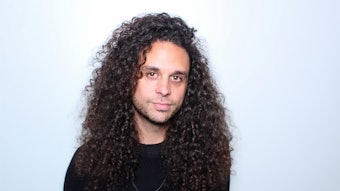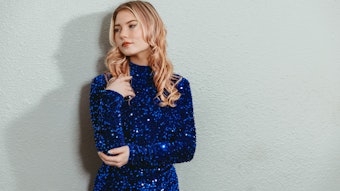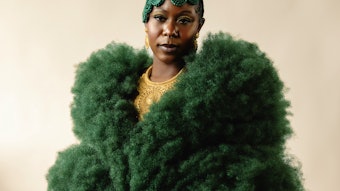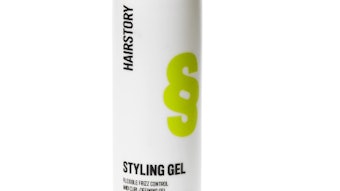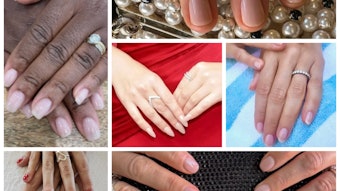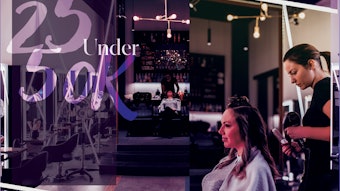 alk to top stylists about their experiences with mentoring and why it is important. Read on to find out what they had to say!
alk to top stylists about their experiences with mentoring and why it is important. Read on to find out what they had to say!
Jane Wurwand, Founder of Dermalogica, gives her thoughts on mentorship.
1. What is the importance of mentoring? How important is a mentoring culture within a salon?
Jane Wurwand: Mentoring is so important within the professional skin care industry because the present level of training required for a license is only the barest minimum of what a skin therapist needs to know in order to have a shot at success. Interpersonal skills and selling skills in particular need to be transmitted from one real person to another. You need to learn it live, in real-time, by watching, listening and repeating. And all skills require practice, and failure. Having a mentor by your side allows you to find mastery and keep going.
2. What are ways one can be a mentor?
You can mentor formally and informally. Everyone who has a license can mentor someone who is just starting out and studying. More advanced professionals have a responsibility to mentor junior staff on the job.
3. What is the difference between education and mentoring?
Education is general course content that everyone needs to learn. Mentoring is more personal. On the technical side, it’s like tutoring: the mentor focuses on specific areas of the material or content where the mentee needs practice and improvement. On the more personal, intangible side, a mentor is more like a life-coach. You get to know your mentee, and you can sense when she or he is discouraged, disappointed, or afraid. A good mentor can continue on with the program, building in some rewards—often subtle, psychological rewards-- which offset the failures so that the mentee does not lose faith and give up.
Throughout the Middle Ages, mentoring was a formal system in Europe—the artisan guilds. They were highly structured and well-regarded. If you worked with stone, metal, glass, wood, textiles or really anything else, you always apprenticed in the guild to master-builders. We would benefit from introducing this kind of structure into our business. It also builds a needed sense of honor into our craft.
4. What is the benefit of continuing education?
Without committing to continuing education, you have de facto retired. You may as well just stay home. This is true in any area of interest, and especially in the exploding arena of health and wellness. The digital age besieges us with misinformation and some real information, too, amidst all of the gossip and prank headlines. The benefit of continuing education is that it trains your mind, even more so than simply imparting new facts. Placing yourself in a continuous education environment means that you are always testing, challenging, trying new things, seeing what works. This sharpens your critical thinking, and makes you less naïve.
5. How has mentoring helped you personally?
First, I was a Saturday Girl, meaning that I was mentored myself as a very young girl. At age 13, I was sweeping up hair cuttings in the local salon. This is common practice in the UK—lots of us were Saturday Girls, including Tracey Sameyah, Dermalogica GM in the USA and Annet King, our Director of Global Education. We all received very useful real-life lessons on those Saturdays!
Today, my mentoring of young people such as Simon Geraghty of Neutrogena and Peter Friis, CEO of Essio, and others at the Anderson School of Business at UCLA really gives me a window into how the digital generation really thinks, works and lives. They are fast on their feet. They are impatient. What strikes me is their comfort-level with the impermanence of it all. They see the entire culture as sort of soluble. The old laws of physics do not apply. They see the marketplace as very ethereal and sketchy, and it’s constantly changing its chemical composition in terms of how you reach customers. Social media, yes, but there are a million new little tweaks every day. A little scary, but it’s absolutely the vital marketing sense of the next wave of consumerism.
6. Does one decide to be a mentor, or is it innate?
I think that all human beings are innate storytellers and have an intrinsic need to nurture. Storytelling is a form of nurturing, of transmitting culture, and of nourishing the younger generation. This is what mentoring is today. It is marking someone with some indicator of belonging. This context and sense of being part of something bigger than you is the basis for teaching skills. Of course, the young mentee will go his or her own way—that is expected, and a good thing. Mentoring gives them the tools to make their way in the forest on their own.
The need to teach, mentor, guide and coach is innate, and we all need to do more of it. Mentoring does more than impart technique. Mentoring gives young people the confidence to achieve and excel.
[Image: Thinkstock]
